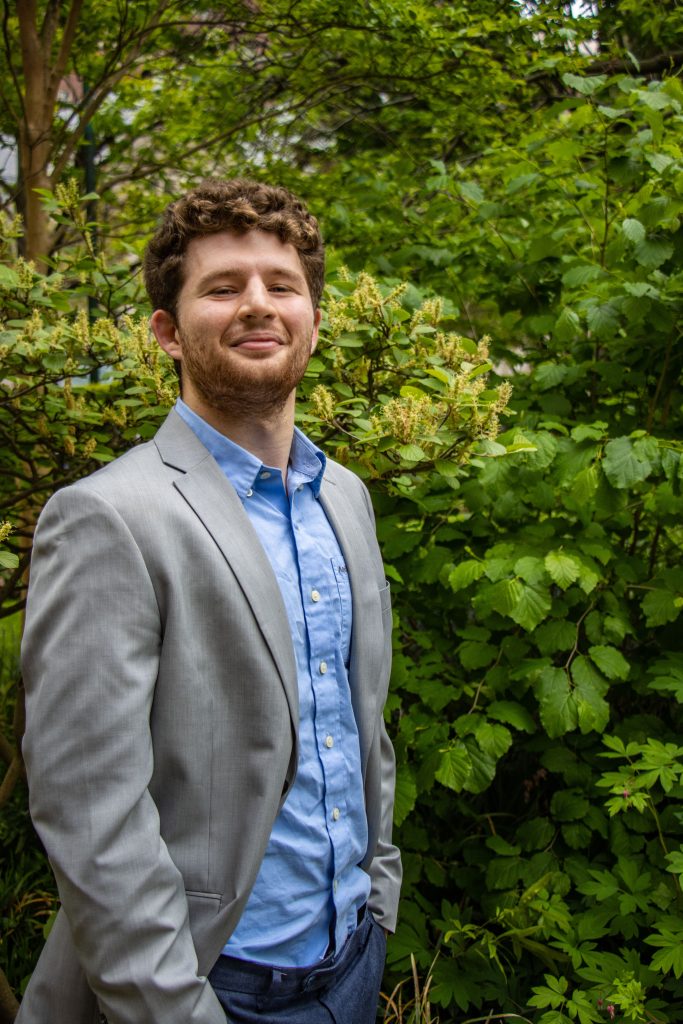
Ian Mijael Zang, COL ’25, Buenos Aires City, Buenos Aires, Argentina
Did you know that, in 1996, a Colombian Guerrilla movement kidnapped the younger brother of the ex-president and, at the time, Secretary General of the OAS for two months, demanding that the SG, accused of being a puppet to the US government, be replaced with award-winning writer Gabriel Garcia Marquez? This fiction-worthy dilemma was resolved after Castro telegraphed the Guerilla Group asking for his release, which he did at the cost of 8 Cuban prisoners. The US soon found out about the secret deal between Gaviria and Castro, summoned the OAS SG for questioning at the senate, and demanded his resignation, opening a unique period of tensions between otherwise OAS allies Colombia and the US.
As the sun sets on my enriching summer experience, I reflect on a journey that took me deep into the heart of international politics, guided by the insightful leadership of Dr. Julia Gray. A dynamic team of six undergraduate RAs, our collaboration mirrored that of a fledgling start-up dedicated to streamlining content production and fostering innovative methodologies through open and vibrant communication channels, including Slack and Zoom. Our mission was clear: to decipher the intricate web of variables that shape the performance of international organizations during different leadership tenures. This endeavor aligned seamlessly with Dr. Gray’s unique approach, viewing global entities as living organisms influenced by the individuals who steer their course—a perspective rooted in the constructivist theory of international relations.
Our ambitious goal demanded a delicate balance between qualitative and quantitative exploration. Delving into the annals of history, we meticulously dissected the roles and impacts of Secretary Generals, tracing the evolution of massive international organizations since their inception. Amid the wealth of information, I was immersed in a quest to automate specific processes, harnessing the power of tools like Browse AI, Lexis Uni, and GPT-4. This technological integration proved exhilarating and challenging as we cautiously navigated the line between speed and accuracy. Converting this trove of qualitative data into quantitative insights presented its hurdles. There is something humbling and inspiring about being part of scientific projects that started long before you arrived and will continue after you are gone, adding the challenge of communicating with previous and future generations of researchers. The conversion process, however, was eased by the foundation laid by previous project iterations, providing us with models that translated nuanced information into tangible numerical values. Complex Excel spreadsheets transformed text entries into figures, enabling us to analyze organizational vitality across various international entities comprehensively.
This immersive research experience has profoundly shaped my academic and personal growth. My passion for international relations and history found expression in the intricate timelines of international governmental organizations, allowing me to develop a profound understanding of their progression. Collaborative skills blossomed as we harnessed the potential of new platforms to share ideas and foster collective progress. The marriage of technology and creativity was forged through my endeavors to incorporate AI tools, expanding my horizons in innovative ways. All these elements will prove invaluable in my professional path. As I step into the future, I carry a newfound zeal for research that bridges the gap between qualitative depth and quantitative analysis, laying the foundation for future explorations at the crossroads of global politics, particularly with a focus on Latin America. This summer has instilled in me the confidence to unravel complexities, encouraging my pursuit of knowledge at the intersection of human dynamics and empirical investigation.
In closing, I am deeply grateful to Career Services for allowing me to spend the summer researching under Dr. Julia Gray, someone whose papers I had come across and deeply appreciated in the past, without even knowing she taught at Penn. Thank you, Dr. Gray, for enduring my silly jokes and excessive enthusiasm about AI tools and code that ultimately led nowhere. I look forward to continuing our work together as I head to the British Archives while abroad at Oxford, and I am excited to see where this investigation leads!
This is part of a series of posts by recipients of the 2023 Career Services Summer Funding Grant. We’ve asked funding recipients to reflect on their summer experiences and talk about the industries in which they spent their summer. You can read the entire series here




